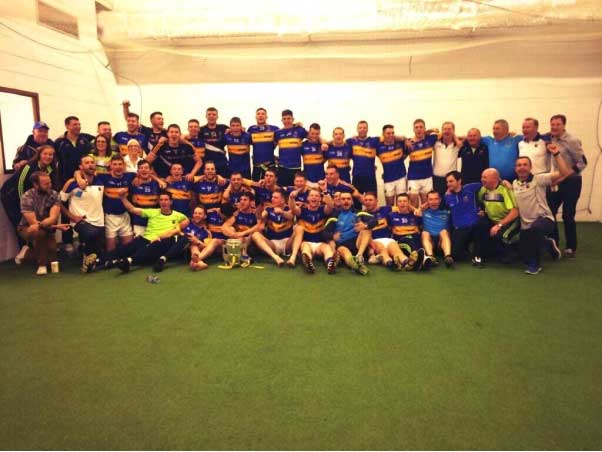What Others Are Saying
-
"Tony is thoroughly professional and immediately developed strong relationships with our Group - Players and Management alike. Tony is a top man who will really help you and your team to achieve the best from yourself. He cares deeply about his team and is a key part of our set up"
-Mick Ryan , (Tipperary Senior Hurling Manager 2016-2018).
-
"Tony was an important part in developing a program that looked after the wellbeing of players on and off the field, created with management and players a motivational team environment that people felt trusted, valued, respected and connected, developed a process based model towards tasks and performances and helped develop the mental skills of our team to perform under pressure."
-Kevin Walsh - Galway football team 2015-2019,

-
MOTIVATION
What are your internal and external drivers as a person? What do you want to achieve from your career? Why is this important to you to achieve this? What is the legacy you wish to create?
-
CONFIDENCE
Are you aware where confidence comes from? Do you know what empowers your confidence? Are you aware what disables your confidence? How can we use mental skills to develop your confidence?
-
COMMITMENT
Do you have clear vision of what success looks like? Do you have clearly defined areas of focus to achieve this vision? Do you have clear process and competition goals for your training, preparation and performance?
-
CONCENTRATION
Do you know how to focus your attention on the critical tasks in competition? Do you know what you are focused on in the lead in, before and during competitions? Do you know what distracts your attention? Do you know the key tools to refocus when we lose our attention?
-
TRANSITION
Leaving sport can be a difficult experience for athletes. It can be hard to separate from their `athletic identity'. During this transition, the loss of that identity can take several months and years to come to terms with. Athletes can experience anger, denial, hopelessness, before they start to make sense of what has happened and accept the new way of being.
-
GOAL SETTING
How are you measuring success? What outcome goals do you set for the season? What training, practice, lifestyle, behavioural, and performance goals do you set to achieve these outcome goals? Do you review goals and refine your process of success?
-
DEALING WITH SETBACKS
How do you respond to failure in the moment? How do you respond to failure after an event? Do you blame external factors or take responsibility for setbacks?
-
INJURY RECOVERY
Dealing with injury has a physical component, mental (thinking component) and emotional (feeling component). What we think around our injury influences how we feel, act, and ultimately heal. When setbacks occur around injuries it is important, we reframe negative thinking and beliefs we might be having around the injury and look at the opportunities this might afford us e.g. working on other aspects of our game, free time to travel or study, etc.
-
RELATIONSHIP WITH PRESSURE
Do you know the link between activation, intensity and performance? Do you know what pressure does to you physically, mentally and behaviourally? Do you know how to regulate your emotions when pressure hits?
-
ADAPTABILITY
Emotionally intelligent athletes can adapt their thinking, feelings, and actions in response to changing situations. They readily adapt to unpredictable changes and can stay present in the moment to what is important now. They focus on what they can control and influence. They sense the opportunity ahead and take risks by stepping out of their comfort zone.




-
TEAM PURPOSE
Why does this team exist – history, achievements, rituals? What is unique about this team and the people on it? What motivates this team? What does it look like at its best?
-
TEAM VISION
What does success look like for this team? How would we know we have achieved this vision? What main areas of focus would enable this vision to happen?
-
TEAM IDENTITY
What are the values and standards of behaviours this team wants to demonstrate with each other, clients and the World? How do we measure, reinforce and challenge good/poor behaviours in our team? What are the key strengths of this team that make it unique?
-
TEAM ROLES & EXPECTATIONS
Who does what, when, and where? Consistently Communicating and clarifying expectations of team members. Reinforcing when roles done well and understanding what impedes team members from executing their roles to the best of their ability.
-
TEAM GOALS AND STRATEGIES
What are the outcome goals we want to achieve as a team? What is our process for achieving this? What is our task, process, and performance, wellbeing goals along the journey? How do we achieve small, medium and longer-term goals?
-
TEAM REVIEWS AND FEEDBACK
How consistent are we in delivering messages around our key performance markers? What is our process for delivering feedback? What tools and resources are we using to adapt to the different learning styles within our team? How and when do we receive feedback from team members on how we can improve our process?
-
TEAM CLIMATE
How do we assess the mood and energy of our team members? How do we adjust the plan when people are not improving, learning, or enjoying the team environment? How do we deal with conflict and critical moments in this team? What stage of the lifecycle is this team at e.g. forming, storming, norming, or performing?
